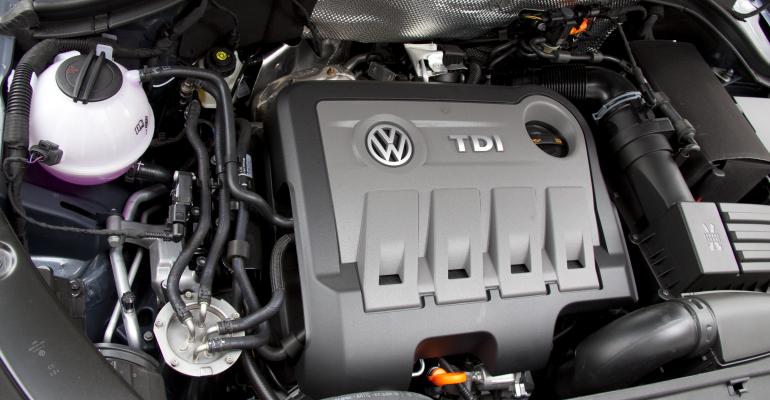Volkswagen’s Dieselgate woes in South Korea still are giving senior executives at VW Korea and Audi Korea heartburn.
The Seoul public prosecutor’s office Wednesday questioned Detlef Stendel, the emissions certification manager at VW’s German headquarters since 2004, seeking to learn if the automaker instructed executives in Korea to install emissions-cheating software in their diesel engines or otherwise ordered them to fraudulently obtain vehicle-emissions certificates.
Stendel is one of seven executives at VW headquarters in Germany who were summoned in July to appear before Korean prosecutors. He is the only executive to comply, and he refused to tell reporters whether the other six also will appear for questioning.
Prosecutors as yet have not disclosed what they learned in the interview with Stendel, or what action they may take against Audi VW Korea CEO Johannes Thammer, VW Korea Managing Director Thomas Kuehl and former VW Korea Managing Director Park Dong-hoon.
Stendel himself has been granted immunity, as prosecutors pledged he personally would not be charged with any crime, regardless of what his testimony might disclose.
“As a witness and a Volkswagen employee I have come to cooperate with Korean investigators and help them find the truth,” Stendel told reporters in German after arriving Wednesday at the prosecutor’s office. “This is very important to me.”
Thammer, Kuehl and Park, now CEO of Korean automaker Renault Samsung, were questioned earlier by Seoul prosecutors, who are mulling whether to charge them for defrauding the Korean government for their role in the emissions-rigging scandal that has caused VW and Audi sales in Korea grind to a near-halt.
Prosecutors are holding the three executives’ passports as they are considered suspects.
Korean Pollution Concerns Predated Dieselgate
In 2011, when Korea’s Ministry of the Environment was concerned about excessive nitrogen-oxide emissions caused by certain VW diesel engines, Stendel was sent from Germany to explain the high readings, although the vehicles in question all had received emissions-testing certification.
However, he left Korea without clarifying the emissions discrepancy and did not provide requested documents that would shed light on the problem.
The Audi and VW diesel engines kept polluting when the emissions-cheating software was discovered in the U.S. a year ago. Many Audi and VW models sold in Korea were found to be equipped with the software.
Prosecutors later seized records from VW Korea’s headquarters which revealed the automaker also had submitted false emissions and noise, vibration and harshness certification documents on some vehicles, in addition to those in which the emissions-rigging software had been installed.
One Korean national who was in charge of the certification process is awaiting trial on charges of defrauding the Korean government. He is said to have testified that Thammer and Kuehl had knowledge the emissions documents were falsified.
In addition to possibly facing arrest, the Audi Korea and VW Korea senior executives have seen sales collapse, crippling profitability and wreaking havoc on their dealers.
Since the Ministry of the Environment pulled certification from 80 variants of VW and Audi vehicles Aug. 2 and slapped the automakers with a 17.8 billion won ($16 million) fine, sales virtually have dried up. That action was based on evidence VW had falsified emissions-certification documents, which is separate from the emissions-cheating software scandal.
In August VW Korea sold just 76 vehicles, an 82% drop from the 425 sold in July and a 97.6% decline from 3,145 delivered in August 2015.
For the first eight months of 2016, VW sales in Korea were down 47.7% year-over-year. Just 12,964 vehicles were sold compared with 24,778 in like-2015.
Audi Korea delivered only 476 vehicles in August, a drop of 68.4% from 1,504 sold in July.
For the first eight months of 2016 Audi sold 15,038 units, down 24.7% from year-ago.
The Korean government also fined VW 14.1 billion won ($12.7 million) in November and ordered the recall of 125,500 vehicles equipped with emissions-rigging software.
There has been no recall as yet, as the Ministry of the Environment is not satisfied with any of the voluntary plans VW has submitted for its approval, leaving some 125,500 polluting vehicles on Korean roads.





